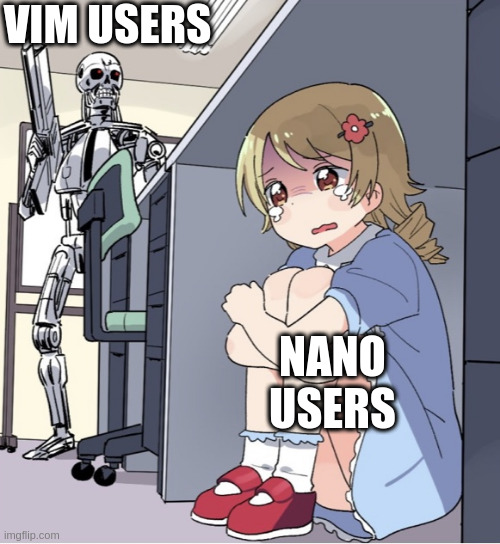this post was submitted on 02 Sep 2024
790 points (93.5% liked)
Linux
48920 readers
797 users here now
From Wikipedia, the free encyclopedia
Linux is a family of open source Unix-like operating systems based on the Linux kernel, an operating system kernel first released on September 17, 1991 by Linus Torvalds. Linux is typically packaged in a Linux distribution (or distro for short).
Distributions include the Linux kernel and supporting system software and libraries, many of which are provided by the GNU Project. Many Linux distributions use the word "Linux" in their name, but the Free Software Foundation uses the name GNU/Linux to emphasize the importance of GNU software, causing some controversy.
Rules
- Posts must be relevant to operating systems running the Linux kernel. GNU/Linux or otherwise.
- No misinformation
- No NSFW content
- No hate speech, bigotry, etc
Related Communities
Community icon by Alpár-Etele Méder, licensed under CC BY 3.0
founded 5 years ago
MODERATORS
you are viewing a single comment's thread
view the rest of the comments
view the rest of the comments

Lua outside of Vim has huge applications in embedded products. Dude I would kill for Lua. Do you know what we have? Common Lisp. Yeah, it's great and fancy and all, but try adding that to your CV and applying for an embedded system job.
My point is, then use Lua outside of Vim. What does this have anything to do with the language used in Vim? You can use Vimscript in Vim, and still use Lua outside of Vim. So what's the problem? It's not like Lua gets available to you outside of Vim, just because you switch to Neovim. What do I miss here?
(it was mostly a joke, but) the skills you acquire tinkering your Vim to your needs using vimscript can't be used elsewhere, whereas Emacs has the (small) advantage that at least most of one's elisp skills can be translated to common lisp quite easily (with the joke being that common lisp really isn't that useful, hence my Lua jealousy rant).